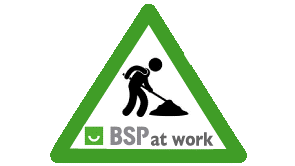![]()
11 September 2020
British Society of Periodontology responds on many fronts to the challenges posed by Covid-19
Categories:Clinical Practice, National Activities, Covid-19

The national societies of periodontology who make up the EFP have responded to the challenges posed by the Covid-19 pandemic. The federation is publishing a series of articles about the initiatives of its member societies, starting with the British Society of Periodontology and Implant Dentistry, whose president Nikos Donos explains how the society has provided online education and support, while working with health authorities on planning the safe return to practice.
On March 11, the World Health Organization declared a global pandemic and we found ourselves in an unprecedented situation with the world battling the outbreak of Covid-19.
As a profession, we were in a difficult predicament as we had a responsibility to protect our patients and our staff whilst also looking after our own health and safety, together with that of our families. It was also clear that changing behaviour was essential for reducing the risks associated with this rapidly unfolding health crisis.
As a society, we recognised the need to support our members during this difficult time and the BSP team worked incredibly hard to provide guidance to them and the wider dental community. In addition, the BSP Council continued promoting all the activities and initiatives that had been previously started, ensuring that stability and continuity was provided for our members.
While some colleagues were redeployed to support frontline National Health Service (NHS) staff, many in the profession found themselves unable to practise and some have had the added financial pressure of not qualifying for government support. We worked behind the scenes, engaging with the relevant stakeholders, and doing everything we could to support the interests of our members and the wider dental community at this challenging time.
Professor Iain Chapple (University of Birmingham, EFP secretary general 2016-19) worked with the Office of the Chief Dental Officer England, representing the BSP as a stakeholder, to develop a standard operating procedure (SOP) for the safe return to practice. His specific remit was to look at which aspects of periodontal care could be managed with non-aerosol-generating procedures while the risk levels in the community were still relatively high.
The BSP team ensured that we sent our members regular updates detailing the latest news and guidance. This information was also added to the news page of our website and shared on our social-media platforms.
Once UK guidance was released, the BSP created a “Risks associated with steps of treatment” flowchart to help practitioners apply the rules in practice. A lot of work went into producing this document and we were delighted that it was so well received by the UK dental community.
Continuing education
During lockdown we continued with our educational programme. We recognised that many undergraduate students would benefit from educational support and we therefore organised an additional free “By students, for students” webinar. Undergraduates from the University of Manchester worked incredibly hard and delivered a fantastic webinar on the aetiology, diagnosis, and treatment of the perio-endo lesion.
Over 730 people registered to view the webinar and we were delighted that these student webinars continue to be popular and that our initiative to support the future of our profession has been so greatly valued by undergraduates.
To support the wider dental community during lockdown, we also added some older webinars to our YouTube channel, so that the educational material could be viewed for free. The webinars were extremely popular, with viewings by up to 2,000 people.
We also organised a series of four webinars entitled “BSP Back to Work: Hand Instrumentation Masterclass.” We made the webinars free to non-members as we felt it was important to help the wider dental community prepare to return to work and adapt to the many changes in the way we provide care for patients in the challenging context of Covid-19. We received overwhelmingly positive feedback for this educational series, and more than 11,380 dental-care professionals subscribed to the events.
EFP Clinical Practice Guideline
During lockdown, the BSP reviewed the EFP’s evidenced-based S3-level Clinical Practice Guideline. Led by Prof Nicola West (University of Bristol, EFP secretary general) and Prof Moritz Kebschull (University of Birmingham), we held working-group meetings comprised of dental professionals, medical experts, stakeholders, and members of the BSP Patient Forum to rapidly review the European guidelines, ensuring they are suitable for the UK healthcare system.
The BSP recognises that this will be an important document as the recommendations provide evidence-based support for specialists, dentists, dental hygienists, and dental therapists. The society is also planning a series of educational webinars to assist our members and the wider dental community in interpreting the guidelines.
In August, I was invited by the President of the Indian Society of Periodontology (ISP) to deliver a webinar to its members. The ISP has been trying to support its members through this difficult phase by making sure that everyone comes out of this pandemic with enhanced skills and knowledge. To this end, it has invited other national societies of periodontology to host webinars and I was delighted to give a presentation on peri-implant diseases and conditions. This pandemic has certainly brought people together through education and it was an honour to help another national society.
The BSP team continues to be busy answering member enquiries and working on the aims of our strategic plan. We are now working on a range of resources for our new website, which will certainly benefit our members, their patients, and the public.




